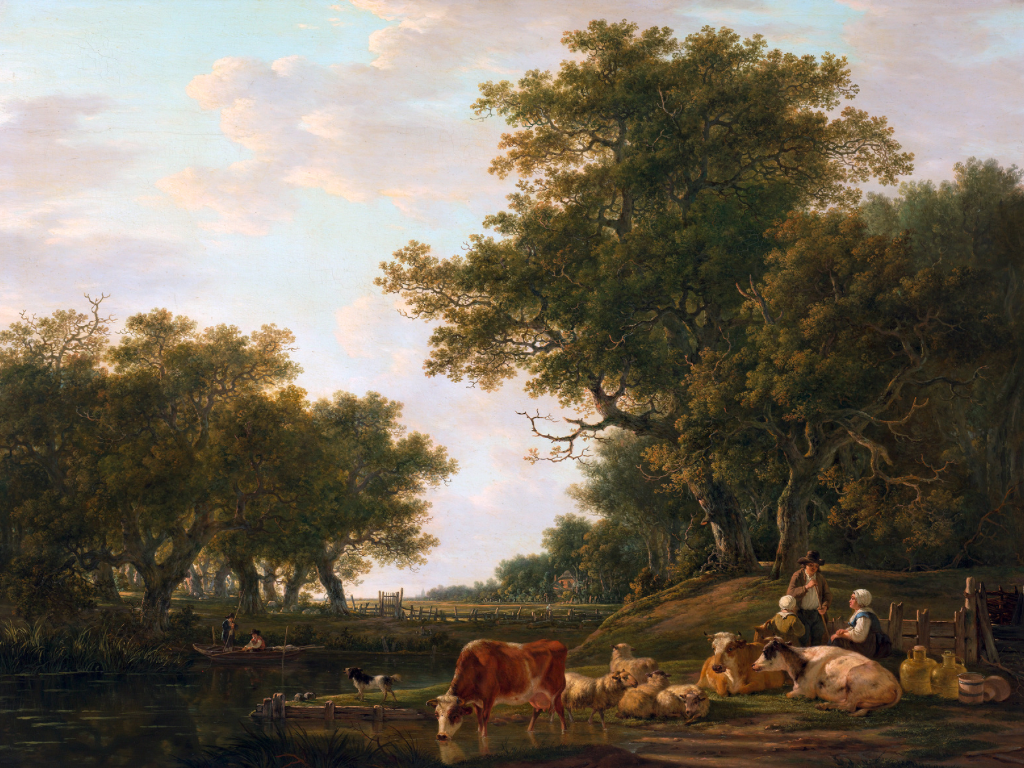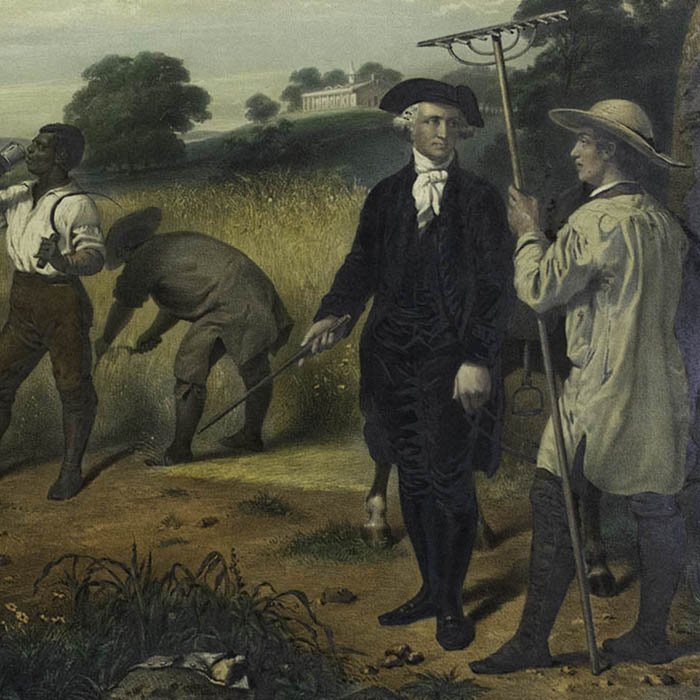George Washington: A Culinary Legacy of Farming, Innovation, and Hospitality
George Washington is widely known as one of the founding fathers of the United States of America, but he was also a successful farmer and a renowned host. As a food lover and adventurer, I couldn't help but be fascinated by his culinary contributions and the impact they had on American food culture. In this blog, I'll explore George Washington's food culture, his farming practices, and his famous dishes. I'll also take a closer look at the George Washington distillery and how it has contributed to our understanding of his food legacy.
George Washington: The Farmer
Before delving into Washington's food culture, it's essential to understand his background as a farmer. In the late 18th century, farming was a crucial part of American life, and it was no different for Washington. He owned and operated Mount Vernon, a 7,600-acre plantation located in Virginia. The plantation was home to a wide variety of crops, including wheat, tobacco, and corn. In addition to these crops, Washington also had a substantial livestock operation that included horses, cattle, and hogs. Washington was an innovative farmer, and he experimented with new crops and farming techniques. He was particularly interested in improving soil fertility and implementing crop rotation to maintain the health of his land.
George Washington had innovative farming practices, which helped to transform agriculture in America. Washington was a skilled farmer who was always experimenting with new techniques and technologies to improve his yields and the health of his crops.
One of Washington's most significant contributions was his use of crop rotation. Rather than planting the same crop year after year, Washington rotated his crops to prevent soil depletion and to promote healthy, nutrient-rich soil. He also experimented with different crops, including legumes, which helped to fix nitrogen in the soil and improve fertility.
Washington was also an advocate for using natural fertilizers, such as manure and compost, instead of chemical fertilizers. He believed that the health of the land was essential to the success of farming and that using natural methods was the best way to promote long-term sustainability.
Washington's farming practices were so successful that he became a model for other farmers in America, and his techniques were widely adopted throughout the country. His emphasis on sustainability, innovation, and environmental stewardship helped to shape American agriculture and continues to influence farming practices today.
In addition to his farming practices, Washington was also an advocate for local food production and consumption. He believed that eating locally produced food was healthier, more sustainable, and better for the local economy. He often served guests at Mount Vernon with food grown and produced on the estate, including fruits, vegetables, meats, and dairy products.
Washington's emphasis on local food production and sustainability is still relevant today, as many people are returning to these practices in an effort to promote healthier, more sustainable food systems. His legacy as a farmer and innovator continues to influence American food culture, and his commitment to sustainability and environmental stewardship remains an important part of his legacy.
Washington's Food Culture
Washington's farming practices heavily influenced his food culture. He believed in the importance of using fresh, local ingredients, and he was known for his hospitality. He and his wife, Martha, hosted thousands of guests at Mount Vernon over the years, and they always made sure to serve the best food and drink possible. Washington was particularly fond of Virginia ham, which he served at nearly every meal. He also had a preference for fish, and he loved to eat it fried or broiled. Washington was also known for his love of desserts, particularly ice cream, which he would often serve to his guests.
One of the most significant contributions that Washington made to American food culture was the creation of the Thanksgiving holiday. While Thanksgiving had been celebrated in various forms since the 1600s, it was not a national holiday until 1863, when President Abraham Lincoln declared it so. However, it was Washington who first proclaimed a national day of thanksgiving in 1789, shortly after he became president. He believed that it was essential for Americans to give thanks for the blessings they had received, and he hoped that the day would bring unity and peace to the new nation.
Washington's Famous Dishes
As a food lover, I'm always curious about famous dishes from different parts of the world. So, what were some of Washington's signature dishes? One of his most famous creations was a recipe for "hoecakes," a simple cornbread-like dish made with cornmeal, water, and salt. Hoecakes were a staple of Southern cuisine at the time, and Washington was known to serve them to his guests. Another famous dish was "Virginia-style" peanut soup, which was made with peanuts, cream, and chicken stock. Washington also enjoyed a dish called "pepper pot soup," which was made with tripe, vegetables, and pepper.
The George Washington Distillery
One of the most interesting aspects of Washington's food legacy is the George Washington distillery. Located at Mount Vernon, the distillery was constructed in 1797 and operated until 1808. It was one of the largest whiskey distilleries in the United States at the time, and it produced nearly 11,000 gallons of whiskey per year. Washington believed that whiskey was a crucial part of American culture, and he even wrote a recipe for it that was used at the distillery. In 2007, the distillery was reconstructed, and visitors can now tour the facility and learn more about Washington's whiskey-making process
In conclusion, George Washington's food culture and farming practices were a vital part of his legacy, and they continue to influence American food culture today. As a farmer, Washington was innovative and experimental, always looking for ways to improve the health of his land and crops. His belief in the importance of using fresh, local ingredients and his love of hospitality were also essential to his food culture. Washington's famous dishes, such as hoecakes, peanut soup, and pepper pot soup, are still enjoyed by many today, and his creation of the Thanksgiving holiday remains an essential part of American tradition.
Perhaps one of the most significant contributions that Washington made to American food culture was the establishment of the George Washington distillery. Whiskey was an essential part of American culture in the late 18th century, and Washington believed that it was crucial to the nation's economy and identity. His distillery was a testament to his entrepreneurial spirit and his belief in the importance of innovation and progress.
As a food lover and adventurer, I'm always fascinated by the impact that food has on culture and history. George Washington's food legacy is a testament to the power of food to bring people together, to inspire innovation and progress, and to shape the identity of a nation. I'm grateful for his contributions to American food culture, and I look forward to continuing to explore the rich history and diversity of food in America and beyond.





